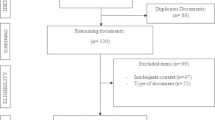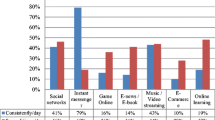Abstract
This study explored the access, use and perceptions of teachers and students towards mobile phones as a tool for facilitating teaching and learning beyond the classroom walls. A total of 29 pre-service teachers and four college instructors from Dar es salaam University College of Education (DUCE) as well as 12 in-service teachers and 40 students from Kibasila secondary school in Tanzania, participated in the study. Data were collected by using pre-service teachers’ questionnaire, students’ questionnaire, and the instructors’, and in-service teachers’ interviews. Findings showed that all in-service teachers, college instructors and pre-service teachers had mobile phones. Also 60 % of school students owned mobile phones, or had access to mobile phones. Students, pre-service teachers and college instructors were in favour of the use of mobile phones for learning, but the majority of in-service teachers were against it. Since mobile phones are the most available technological tools in schools, this study, recommend a professional development programme for in-service teachers to help them develop a positive attitude towards mobile phones use in teaching and learning.
Similar content being viewed by others
References
British Broadcasting Cooperation BBC (2005). Mobile growth 'fastest in Africa'. Retrieved on 03rd August, 2011 from http://news.bbc.co.uk/2/hi/business/4331863.stm.
Collis, B., & Moonen, J. (2001). Flexible learning in a digital world: Experiences and expectations. London: Kogan Page.
Commonwealth of Learning. (2005). Creating learning materials for open and distance learning: a handbook for authors and instructional designer. Vancouver: Commonwealth of Learning.
Ford, M., Batchelor, J. (2007). From zero to hero – is the mobile phone a viable learning tool for Africa? 3rd International Conference on Social and Organizational Informatics and Cybernetics: SOIC. 12-15 July 2007, Orlando, USA.
Ford, M. (November, 2007). Cell phones to the rescue of learners. Science for society:Youth and Learning Magazine pp. 15-17
Hancock, S. (Friday, 22 July 2005). Mobile phones boom in Tanzania. BBC news, retried on 23rd July 2011 from http://news.bbc.co.uk/2/hi/programmes/click_online/4706437.stm
Hare, H. (2007). Survey of ICT in Education in Tanzania. In G. Farrell, S. Isaacs, & M. Trucano (Eds.), Survey of ICT and education in Africa (volume 2): 53 country reports. Washington: infoDev/World Bank.
Hartnell-Young, E., & Heym, N. (2008). How mobile phones help learning in secondary schools. Unpublished Report to Becta, Learning Sciences Research Institute, University of Nottingham.
Johnson, C., & Kritsonis, W. A. (2007). National school debate: Banning cell phones on public school campuses in America. National Forum of Educational Administration and Supervision Journals., 25(4), 1–6.
Kafyulilo, A.C. (2010). Practical use of ICT in teachers Training at Dar es salaam University College of Education: An analysis of prospective teachers’ technological pedagogical content knowledge. Master Dissertation, Enschede: University of Twente.
Kafyulilo, A.C, Fisser, P.H.G., Voogt, V. (2011). ICT use in science and mathematics teachers preparation: Developing pre-service teachers’ TPACK. Paper Presented at the E-Learning Africa Conference 25 th – 27 th May, 2011, Dar es salaam, Tanzania
Kasumuni, L. (2011). Delivering video by mobile phones to classroom in Tanzania. E-learning Africa. Retrieved on 10th June, 2012 from http://www.elearning-africa.com/eLA_Newsportal/delivering-video-by-mobile-phone-to-classrooms-in-tanzania/.
Mwakaje, A. G. (2010). Information and communication technology for rural farmers market access in Tanzania. Journal of Information Technology Impact, 10(2), 111–128.
Nihuka, K. A. (2011). Collaborative course design to support implementation of e-learning by instructors. Doctoral Dissertation, Enschede: University of Twente.
Nihuka, K. & Voogt, J. (2009). E-learning course design in teacher design teams: Experiences in the Open University of Tanzania. Paper presented during the 13th Biannual Conference for Research on Learning and Instruction in Amsterdam, August 25th - 29th, 2009.
Sugiyama, M. (2005). Exploring the Practical use of ICT tools by Teachers for Making Supplemental Teaching/Learning Materials in Secondary Schools in Tanzania, as an Effort of Supporting Students Learning in Science and Mathematics. Unpublished, Master’s Dissertation, Enschede: University of Twente.
Tilya, F. (2003). Teacher support for the use of MBL in activity-based physics teaching in Tanzania. Doctoral dissertation, Enschede: University of Twente.
Traxler, J., & Kukulska-Hulme, A. (2005). Mobile learning in developing countries. Vancouver: Commonwealth of Learning.
URT. (2007). Information and communication technology policy for basic education. Dar es salaam: Government Document.
Author information
Authors and Affiliations
Corresponding author
Rights and permissions
About this article
Cite this article
Kafyulilo, A. Access, use and perceptions of teachers and students towards mobile phones as a tool for teaching and learning in Tanzania. Educ Inf Technol 19, 115–127 (2014). https://doi.org/10.1007/s10639-012-9207-y
Published:
Issue Date:
DOI: https://doi.org/10.1007/s10639-012-9207-y




